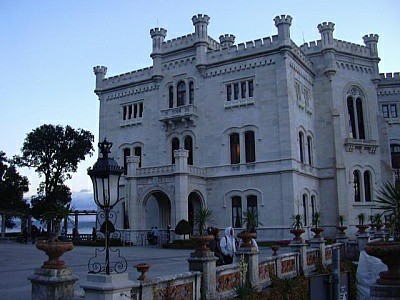[亨利梅因:国际法Lecture6]LECTURE VI. THE DECLARATION OF PARIS.One point of considerable interest in International Law is the very different degree of durability which the various parts...+阅读
LECTURE XII. PROPOSALS TO ABATE WAR.
To this last lecture of the present course, it seems to me desirable that I should briefly notice some assertions or suggestions, not unmonly heard in the present day, that the great evils of war might be abated by the adoption of principles of action not necessarily identical with those which he been discussed in previous lectures. I pass over general statements which seem to me to be mere calumnies, such as the charge against influential military men, that in every society they do their utmost to encourage the spirit of belligerency. Those who he had the privilege of acquaintance with famous soldiers will bear me out in saying that, while there is no class of men more humane, there is none distinguished by a deeper dislike or hatred of war, however they may believe it to be inevitable. But another assertion frequently made is much more respectable, and contains a larger proportion of truth. War, it is said, is irreconcilable with Christian belief and Christian practice. If men acted up to the standards of conduct which great numbers of them theoretically accept, there would be few wars or none. This has long been the doctrine of a sect whose various services to humanity I he already gratefully memorated —— the Quakers; and also of an obscurer munity, the Mennonites.
It will be evident, I think, to everybody who bestows some careful thought on the subject, that there would be great difficulty in adapting a system which professes to regulate the relations of individual men with one another, to the relations of groups of men, of states; and in point of fact the Quakers he not always been quite consistent in the application of their principle. The Quakers of the colony of Pennsylvania were in the American War of Independence strong partisans of the colonial cause; and Benjamin Franklin has left us some curious stories of the fictions by which the Pennsylvanian Quakers reconciled their conscientious objections to war with their keen desire to assist the colonial troops. But it is proper to observe that this opinion of the unlawfulness of war has, in the course of ecclesiastical history, seemed several times likely to bee the opinion of the whole Christian Church, or of a large portion of it. We he most of us been taught to believe, on the authority of a well-known passage in Tertullian, that the Roman Imperial armies were full of Christian soldiers; but the passage is inconsistent with others in the same writer; and I he seen a long catena of extracts from patristic authorities, extending from Justin Martyr to Jerome and Cyril, in which the inconsistency of the military profession with Christian belief is maintained. In fact, this became one of the main points of contention between Christians and pagans. The contention of Celsus, that the Christians refuse to bear arms even in cases of necessity, is met by Origen with the admission that the fact is so, but with the argument that the Christians do not go on campaigns with the Emperor because they serve him with their prayers. If these opinions did not bee those of the whole Church, the cause must probably be sought in the course of historical events, for the invading Teutonic tribes who spread over the Empire could not be untaught the art and practice of fighting, even when they accepted some form of Christianity. Passing over a long space of time to the beginning of the modern history of Christianity, it seemed not improbable that the unlawfulness of war would bee a doctrine of all the Protestant sects; among theologians not quite estranged from Catholicity, the great Erasmus wrote as strongly of the wickedness of war as any Quaker of our day could do, and Sir Thomas More charged Luther and his followers with wishing to deprive sovereigns of their authority by denying to them the power of resistance. On the other hand, the writers dealt with in the foregoing lectures, the founders of International Law, did not adopt the opinion of the Lawfulness of war, though they were nearly all Protestants.
Grotius argues vehemently against it, chiefly on Scriptural grounds. I take the fact to be that he and his immediate followers conceived the body of rules which they believed themselves to he rescued from neglect to be more serviceable for the purpose of regulating the concerns of nati

ons in war and peace, than any system which pretended to a direct descent from Christian records or Christian tradition. The Law of Nature which they spoke of, and apparently believed in, with as little hesitation as if they were thinking of the English mon Law, has not stood against the assaults of modern criticism, and specially not against the inferences suggested by the modern study of primitive mankind. But it did prove possible to apply the rules associated with it to human societies in peace and war; whereas, though a general belief that war Divas unrighteous would assuredly he had important effects, nobody can say confidently what those effects would he been, or can assert that they would he included the extension and stability of peace. Another sweeping proposal for the virtual abolition of war, one of a very different order, however, from that just considered by me, must he e under the notice of most of us. It is said that there is always an alternative to a contest in arms. Nations fight because they cannot go to law.
The old idea that the disputes of states are referred by war to a supernatural arbitrament is now abandoned; but though there is no international tribunal which can entertain as of right the controversies of nations, there is a substitute for it in international arbitration. Let, therefore, every dispute be referred to an arbitrator or to a body of arbitrators, and let civilised munities defer to the award with no more demur than they exhibit in submitting to the decision of a court of justice. A belief in this remedy for war is being widely extended in our day. It is held by persons worthy of ail respect and promoted by powerful voluntary associations. I should be the last person to deny that arbitration in international affairs has often been very happily applied. Nations very often, like men, adhere to their view of disputed points more from pride of opinion than from any real interest in it. Some of these disputes, again, turn on questions of fact, which he not been solved because they he not been properly investigated, but which are easily disposed of when thus looked into by fresh and disc. passionate minds.
But before this or any other country mits itself to arbitration as a universal remedy for war, one or two of its defects ought to be specially noticed. In the first place, though arbitration in individual disputes is well known and frequently tried. it is very unlike the arbitration proposed by its advocates for international differences. The arbitration with which all lawyers are familiar, is merely a displacement of the structure of an ordinary court of justice. The parties agree to refer all or part of the matters in dispute between them to the decision of an arbitrator, who takes the place of the judge or of the judge and a jury, and they at the same time agree that his decision, unless impeachable on certain grounds of law, shall be enforced by the court as would be its own decree. It is a very convenient course when the questions of fact to be adjudicated upon are numerous and plicated, and the principal objection to it is that it is apt to be very expensive. What I wish to point out is that arbitration as in use between individuals in England does not exclude the one great feature of a court of justice, the force which underlies its operations. There are, no doubt, arbitrations which e nearer the arbitrations contemplated by the enthusiasts for universal arbitrations between disputant sovereigns.
A skilful man of business in British mercial cities, an eminent specialist in the practical applications of science, will sometimes obtain a sort of celebrity for just and wise adjudication, and nothing like the process of a court is found necessary to secure obedience to his award. It is, however, many centuries since such authority was attributed to any man or class in international matters; the current of opinion in our day runs distinctly against the assumption that any exceptional knowledge is necessary for the solution of great political and international questions, and therefore the arbitration of which we hear so much would in the long run, and if tried on a great scale, prove to he the defects which would soon show themselves in a court of justice which the State had failed to invest with irresistible coercive power.
以下为关联文档:
亨利梅因:国际法Lecture7LECTURE VII. THE MITIGATION OF WAR.The age in which International Law was born was an age of land wars. The wars of succession and of feudal ascendancy had par...

亨利梅因:国际法Lecture3LECTURE III. STATE SOVEREIGNTYI now propose to occupy you with a group of questions arising out of a subject of much interest and magnitude —— the Sovereignt...

亨利梅因:国际法Lecture4LECTURE IV. TERRITORIAL RIGHTS OF SOVEREIGNTY.All the department of International Law with which I was occupied at the close of my last lecture, the acquisition...

亨利梅因:国际法Lecture9LECTURE IX. RULES AS TO PRISONERS AND QUARTER.At the close of my last lecture I spoke of the Geneva Convention of 1864 as the farthest, as well as the most rece...

亨利梅因:国际法Lecture13LECTURE XI. RIGHTS OF CAPTURE BY LAND.In all modern books on this subject there is more or less distinct condemnation of unauthorized pillage by the soldiers o...

亨利梅因:国际法Lecture8LECTURE VIII. THE MODERN LAWS OF WAR.In my last lecture I explained the detestation which newly-invented instruments of war sometimes occasioned in olden days,...

亨利梅因:国际法Lecture11It is suggested by several of the international writers, and it is probable, that armistices first arose from the truce or truces of God which were repeatedly pro...

亨利梅因:国际法Lecture5LECTURE V. NAVAL OR MARITIME BELLIGERENCY.To sum up what I he been saying. I he been discussing certain legal fictions which are signified through legal metaph...

新东方背诵文选80篇:23亨利·福特HenryFord23 Henry Ford Although Henry Ford's name is closely associated with the concept of mass production, he should receive equal credit for introducing labor practic...



